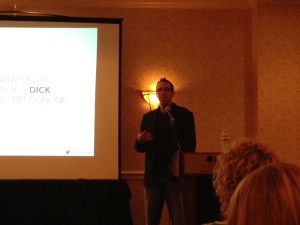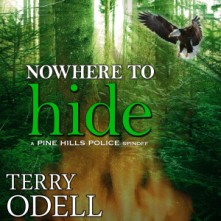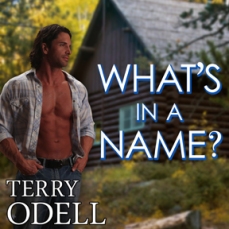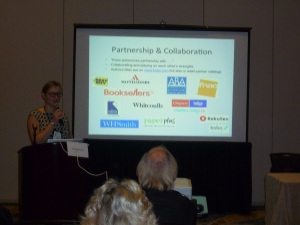Characters Too Weird To Be True by Nancy J. Cohen
“Florida is a giant bug light for crazy people.” ~Phyllis Smallman, Sleuthfest 2014
It’s no surprise to any author living in Florida that some of the craziest stories we can write are actually inspired by true events in our sunshine state. Join us in exploring a different side of Florida than the travel bureau promotes with our first Blog Hop sponsored by Florida Chapter of Mystery Writers of America. Read on, click the links below to read another member’s view of crazy Florida, comment, share your favorite stories, and enter the contest to win a Kindle Paperwhite.
<><><>
Florida has its share of wacky characters. Every Sunday, I buy a newspaper and read through it with a pair of scissors in hand. Inevitably, there’s some article about an interesting resident or an issue that intrigues me. I cut out these articles and file them. Whenever I’m searching for a secret to give a suspect, I’ll glance through these clippings. That’s how I found a cool character who was a funeral director by day and a Samoan fire knife dancer at night. I tracked down the guy, interviewed him at his funeral home and based a character on him in Hair Raiser.
There’s no lack of strange people living in Florida. Criminals move down for the good weather same as other citizens. But most of the interesting characters in the news appear less in the spotlight. It might be a housewife running a prostitution ring, a non-profit administrator embezzling money, or a local teacher found with child porn files on his computer. These are secrets worth considering, because they’ll make the characters in my books seems suspicious. And Florida does have its share of wackos where truth is stranger than fiction.
Another character I used in a book was inspired by a reader at a talk I gave. She’d owned a clothing boutique and mentioned a guy who came in and wanted to try on women’s clothes. This idea was perfect for Murder by Manicure who now has a transvestite in the story. So you never know where inspiration will strike.
For Hanging By A Hair, #11 in the Bad Hair Day mysteries, neighborhood communities played a role in story development. Who hasn’t had trouble with their homeowners’ association? Marla’s husband has a disagreement with their HOA president who is later found dead. Our state’s Native American heritage comes into play in this story with a suspect who is a tribal shaman.
Florida has a rich history, a diverse ecosystem, and a hotbed of issues. All we have to do is read the newspaper for ideas. Thus I’ve dealt with citrus canker, illegal immigrant labor, exotic bird smuggling, child drowning prevention, melanoma detection, and a host of other matters that affect Floridians. Although these issues can be serious, my stories contain humor, a satisfying ending, and a lesson learned. And what have I learned? We never lack for material in sunny South Florida.
Amazon Hardcover: http://www.amazon.com/Hanging-Hair-Nancy-J-Cohen/dp/1432828142
Amazon Kindle: http://www.amazon.com/Hanging-Hair-Bad-Day-Mysteries-ebook/dp/B00JJ2XVUQ/
Barnes and Noble: http://www.barnesandnoble.com/w/hanging-by-a-hair-nancy-j-cohen/1116603785
Nancy J. Cohen has written over twenty romance and mystery novels. She wishes she could style hair like her hairdresser sleuth, Marla Shore, but can usually be found reading instead.
<><><>
Blog Commenters can win an ebook copy of either Shear Murder or Writing the Cozy Mystery (your choice). Winner will be announced on April 23. Leave a comment, and your name will automatically be entered. And don’t miss our Grand Prize contest below!
<><><>
Click on the link below to Win a KINDLE PAPERWHITE
No purchase is necessary. You must be at least 18 years old to enter. By submitting your entry, you agree to be entered into the participating authors’ email newsletter list. Your information will not be shared with anyone else, and you may unsubscribe at any time. Winner will be notified by email. Authors are not responsible for transmission failures, computer glitches or lost, late, damaged or returned email. Winner agrees for their name to be used in conjunction with the contest on FMWA and authors’ social media sites. U.S. Residents only due to postage constraints.
<><><>
Visit our other FMWA Authors and win more prizes:
Victoria Allman, Gator Bites, http://www.victoriaallman.com/blog
Miriam Auerbach, Bonkers in Boca, http://www.miriamauerbach.com/bonkers-in-boca
Gregg E. Brickman, Crazy South Florida—How it got to be home, http://www.GreggEBrickman.com/blog.html
Diane Capri, Fishnado!, http://www.dianecapri.com/blog
Joan Cochran, The Million Dollar Squatter: Crazy in the Land of Coconuts and Bagels, http://www.joanlipinskycochran.com/blog.htm?post=952677
Nancy J. Cohen, Characters Too Weird to Be True, http://nancyjcohen.wordpress.com
JD Daniels, He Did What? http://www.live-from-jd.com
Joy Wallace Dickinson, In Florida, It’s Great to Be a Cracker, http://www.FindingJoyinFlorida.com
Linda Gordon Hengerer, Crazy Treasure on the Treasure Coast, http://footballfoodandfiction.blogspot.com/
Victoria Landis, Eavesdropping 101, http://www.victorialandis.com
Sandy Parks, Keep your eyes to the Florida skies, http://www.sandyparks.wordpress.com
Neil Plakcy, Moscow on the Intracoastal, http://www.mahubooks.blogspot.com/
Johnny Ray, Utilizing Google Plus Air to Facilitate Author Interviews, http://www.sirjohn.us
Joanna Campbell Slan, Honey, You’ll Never Guess What Rolled Up in the Surf, http://www.joannaslan.blogspot.com
































